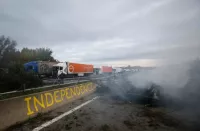
Russia and 9/11: Roads not taken
On 12 September 2001, Russian president Vladimir Putin was the first foreign leader to call George W. Bush to express his condolences – and to offer him support.
Just the previous year, Putin had said Russia joining NATO was a possibility and it suited Russia to draw parallels between the terrorist attacks on the US and its own ‘anti-terrorist’ campaign in Chechnya at the time.
Even though much of the Russian commentary about 9/11 professed empathy rather than sympathy, in their eyes the US was both a victim – as Russia likes to see itself – and ‘had it coming’ while Russia was blameless.… Seguir leyendo »

















